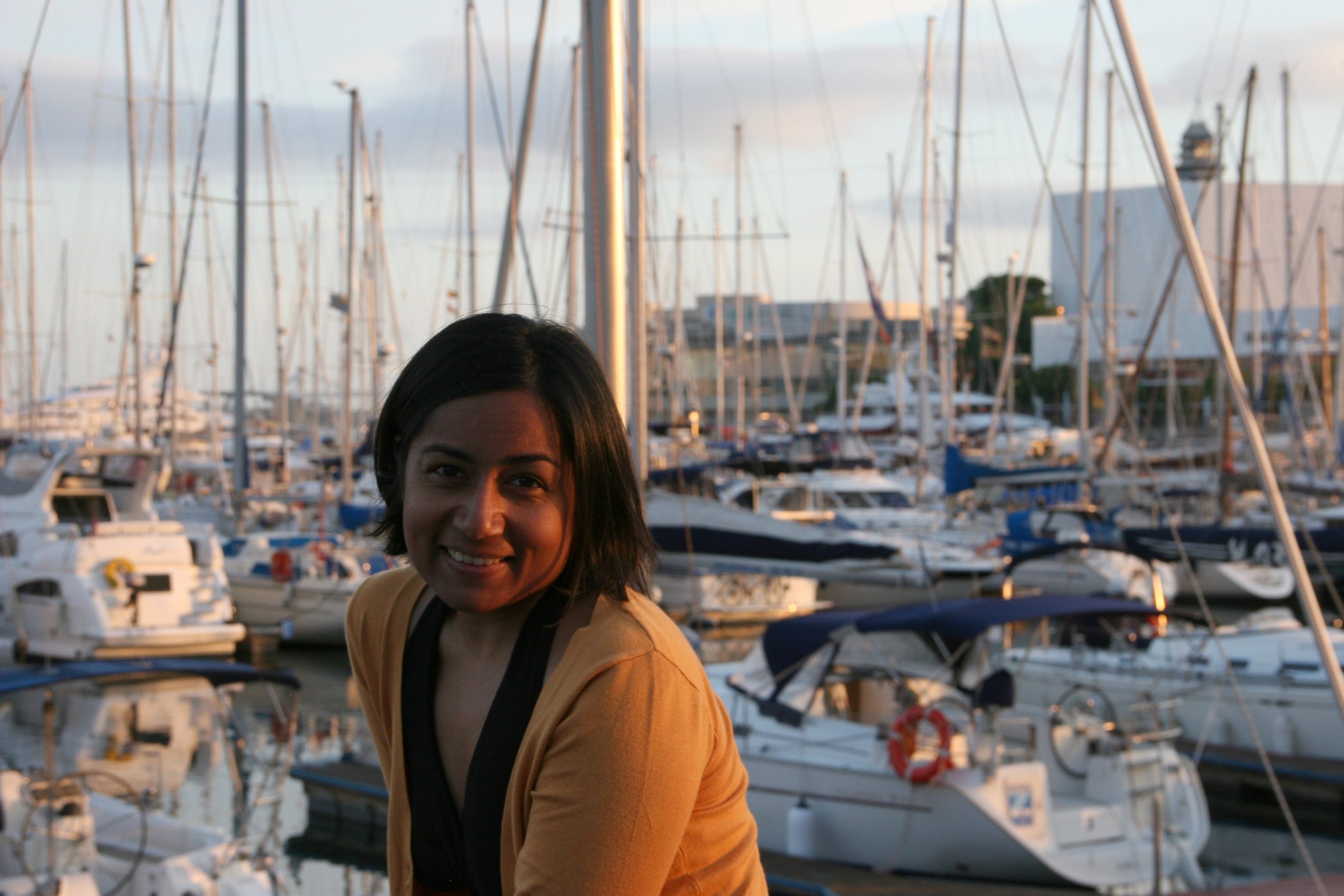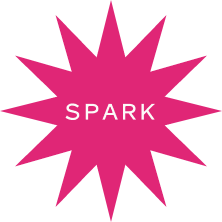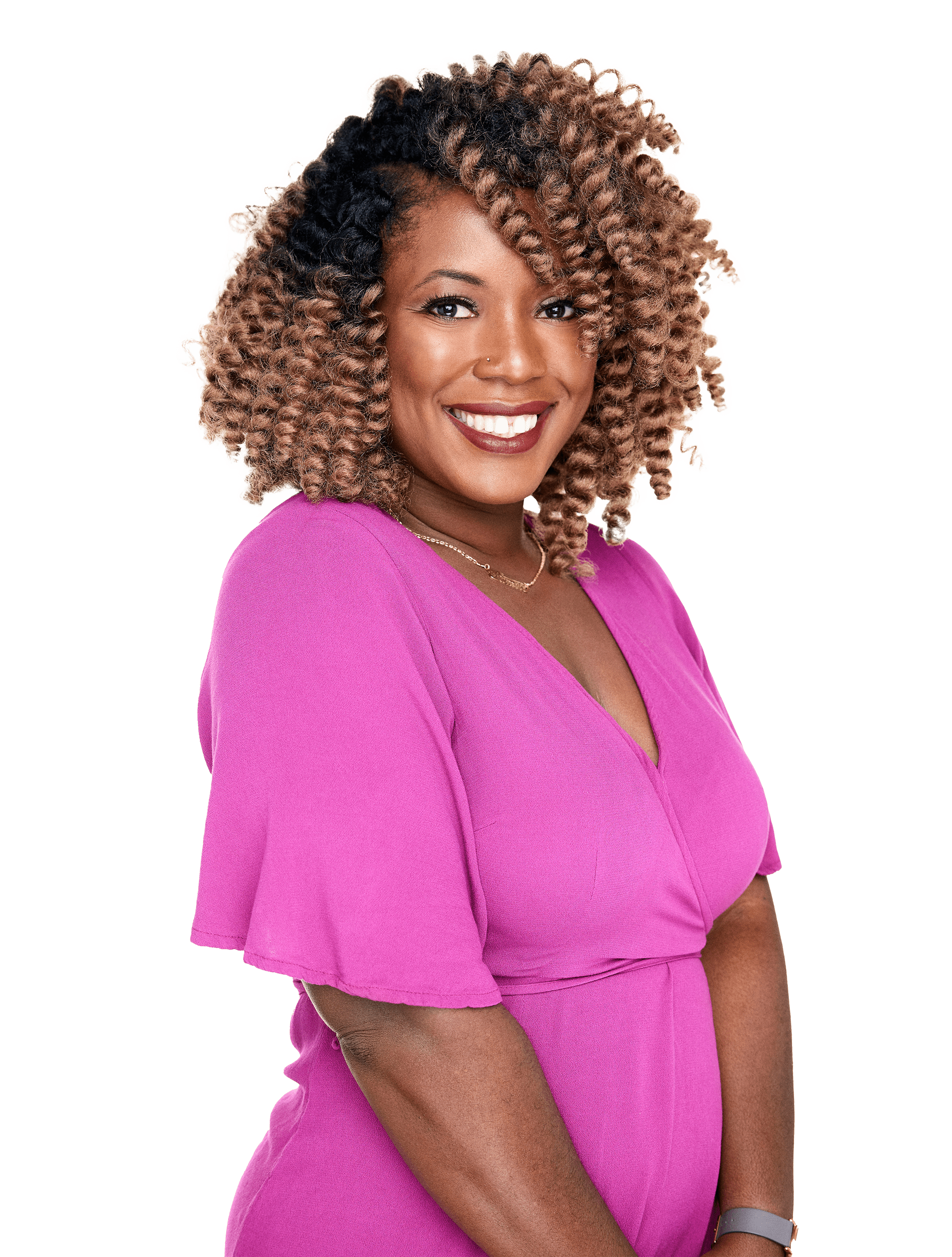I am an
ENERGY SYSTEMS SCIENTIST
At the Electric Power Research InstituteNidhi Santen, PhD
This scientist was part of our original collection.*A few features may be different.
NIDHI
SANTEN
She/Her
“There is room in science for all sorts of different skill sets.”
For Dr. Nidhi Santen, science has always been a tool for protecting the thing she loves most: nature.
A born explorer, she spent her childhood running through the trees and exploring the woods behind her house with her brother and sister. She was a quiet kid who loved to draw and was always looking for more excuses to play outside, even became a (self-declared) honorary member of her brother’s Boy Scouts troop, just so she could tag along on their outdoor adventures. Later, she ran track, played lacrosse, and jumped at every opportunity to go hiking, camping, and rock-climbing with friends.
In college, she studied geography and learned more about resources, communities, and the environment. But it wasn’t until she took a class on environmental ethics that her mission became clear. Her teacher inspired her to move to DC, where she spent her nights working as a waitress and her days learning everything she could about how the government passes laws and makes policy decisions related to the environment.
She realized that our current behaviors could be putting our planet at risk. She became fascinated with the idea of “clean energy”, which basically means finding ways to power our lives in the most sustainable and responsible ways possible. The only problem? Her geography degree hadn’t provided enough of the math and science skills she needed to do the work well.
So, she went back to school.
She enrolled in community college through the summers and spent the rest of the year working and saving her money. Slowly, she filled in the gaps in her knowledge. She did a Masters in Environmental Policy to learn more about how laws are made, and a Masters in Environmental Science to learn more about how air pollution released from power plants and other man-made processes affects the environment. She then went on to do a PhD in Engineering Systems to learn more about how to design an environmentally- and economically-sustainable system for producing and using electricity.
Her life may not have followed a neat and traditional path, but if it had, she may not have ended up with the diverse skills and dispositions that she needed to serve her purpose well. At each step, she looked for what she didn’t yet know, and patiently built the skills and training necessary to become the formidable ally that nature needs.
Today, she works collaboratively, creatively, and strategically to help design a future where we’re able to get the energy that we need to power our homes, our work, and our play, while making sure that nature gets the protections it needs to preserve our air, our water, and our earth.
After all, that’s the only way to ensure that kids everywhere can keep running through the trees behind their houses for generations to come.
Notable Accomplishments:
Ph.D in Engineering Systems, MIT
The
basics:
Expertise: Energy Systems Science; Engineering; Electricity; Environmental Ethics
Title: Senior Technical Leader, Energy Systems & Climate Analysis Group
Institution: Electric Power Research Institute
Personal Resources + Links:
RESEARCHGATE → I am a family-oriented shopping lover who is studying sustainable ways to power our world.
GAMES
•
DRAWING
•
SHOPPING WITH GIRLFRIENDS
•
ADVOCATING FOR WOMEN'S RIGHTS
•
NATURE AND THE OUTDOORS
•
GAMES • DRAWING • SHOPPING WITH GIRLFRIENDS • ADVOCATING FOR WOMEN'S RIGHTS • NATURE AND THE OUTDOORS •
things I love:



WHAT I DO
i am aN ENERGY SYSTEMS SCIENTIST
I find electricity particularly interesting because it touches so many aspects of our everyday lives.
I work in a research institute where many scientists and engineers collaborate.
I spend most of my time working on a computer, using math and models to help me understand how electricity can be made, moved around, and used.
We use energy all the time.
We use it to power our stuff and keep the lights on. But all of that energy has to come from somewhere, and it’s important to think about those sources. I study how different sources of energy can be used to meet our needs for electricity responsibly.
ENERGY AFFECT EVERYONE.
Because my science impacts all of our lives, it’s also important for me to think about the role that education, policy, and culture play in getting my research into the real world.
MY WHY
I fell in love with the idea of “clean energy” and saw it as a way to protect the nature that I love so much.
I WANT TO KNOW:
How can use electricity without hurting the planet?
Can we develop cleaner, more sustainable energy sources?
MY ADVICE
a little about me
I was a goalie for lacrosse.
I’m a really, really slow reader. I love nature and feel a responsibility to protect it. I’m a first generation American and grew up in a traditional Indian home. I’m not a morning person. I worked as a waitress through school to pay the bills. I love having picnics in the park with my family. I used to be a barista and still make a great latte. I love being a mom. I study ways to power electricity without harming the planet. My path to science was very twisty. I hung out with the Boy Scouts because they spent more time outside.
MY PATH TO SCIENCE
Playing Outside
I grew up in a traditional Indian home and am a first generation American. I was quiet as a young kid. My family house backed up to the woods so my siblings and I loved running around. I loved being outside, and decided to informally join the Boy Scouts instead of the Girl Scouts because they spent more time outside. I was always drawing with colored pencils. I loved to draw and create much more than reading books.
Beyond Maps
I went to college at the University of Illinois and studied Geography. I thought it was all about maps and locations – my classes turned out to be much more about resources, environment, and communities. I took an environmental ethics course and loved it. I went to the teacher and said “Whatever this is, this is what I want to do.” The teacher convinced me to intern in DC so thatI could learn more about how environmental policy works.
Learning How the Laws are Made
I moved to DC to explore how lawmakers make laws about the environment. I fell in love with the idea of “clean energy” (seeking out responsible energy sources) and saw it as a way to protect the nature that I love so much. I decided I wanted to be part of the solution by studying new ways to produce and use clean energy.
Going Backwards
I realized I had a lot of gaps in my knowledge. I looked into graduate programs, only to find that I didn’t have the background in math and science that I needed. I decided to go back to community college classes during the summers and spent the rest of my time working to pay the bills. After filling in my gaps by going back to school, I went to Indiana University for two Masters programs in Environmental Policy & Atmospheric Science.
Getting Electric
I found electricity particularly interesting because it touches so many aspects of our everyday lives – from flipping a light switch in our homes to the air we breathe outside. I went to get my Ph.D in Engineering Systems at MIT. Now I work on sustainable energy planning. I study how we can build our future electric power systems so that we can live how we want and also protect our air, water, and earth.
I study ENERGY SYSTEMS SCIENCE
Energy scientists study different sources of energy and their impact on the environment, like fuel, wind, or solar power.
INTRODUCING
energy science
What is energy systems science? Why does it matter?
We need energy to do almost everything. Whether it’s energy for our bodies from food or energy from fuel sources like natural gas, solar, or wind to power our home, energy is what keeps everything going. But when we flip a light switch, where does that energy come from? And what are the costs to the natural environment, communities, and the economy? This is the field of energy systems science, which seeks to improve the ways we collect and use energy to power our lives.
Clean energy, green energy, or renewable energy are phrases you may have heard a lot recently. They refer to the ability to harness energy from renewable, theoretically “greener” or more environmentally-friendly, sources. These can include solar power, where energy from the sun is captured in specially-engineered solar panels, wind power, where the turning blades atop tall turbines generate energy we can use in our homes, schools, and workplaces, or even wave energy, which uses the motion of ocean waves as an energy source. There are ingenious ideas for how to harvest power from many types of energy sources, but they are not without environmental or other costs themselves. Solar panels must be created out of mined materials; wind turbines may be installed in areas that previously may have been a habitat for animals that could now be at risk from their turning blades, and the wave power is often produced far away from where the energy is actually needed and used, requiring long transmission lines and expensive equipment. The study of energy systems science is working to figure out how we can power our planet as sustainably and responsibly as possible.
Career Resources
Every scientist’s path is unique, and the right resources can make all of the difference. Below are a selection of resources that may be helpful for those who are interested in areas of science that are related to Nidhi’s work.

“Being a scientist is about not being afraid to ask questions.”
— Nidhi santen
KEEP EXPLORING
Here are some resources we recommend for diving deeper into themes from this story.
Earth & Planetary Sciences
FIELD GUIDE
coming soonView more related scientists:
Looking for teacher resources?
PHOTOGRAPHER: Erica Derrickson • Boston, MA© 2024 THE PLENARY, CO. ALL RIGHTS RESERVED. TERMS. PRIVACY.This is a brand new site! See an issue? Let us know.
















